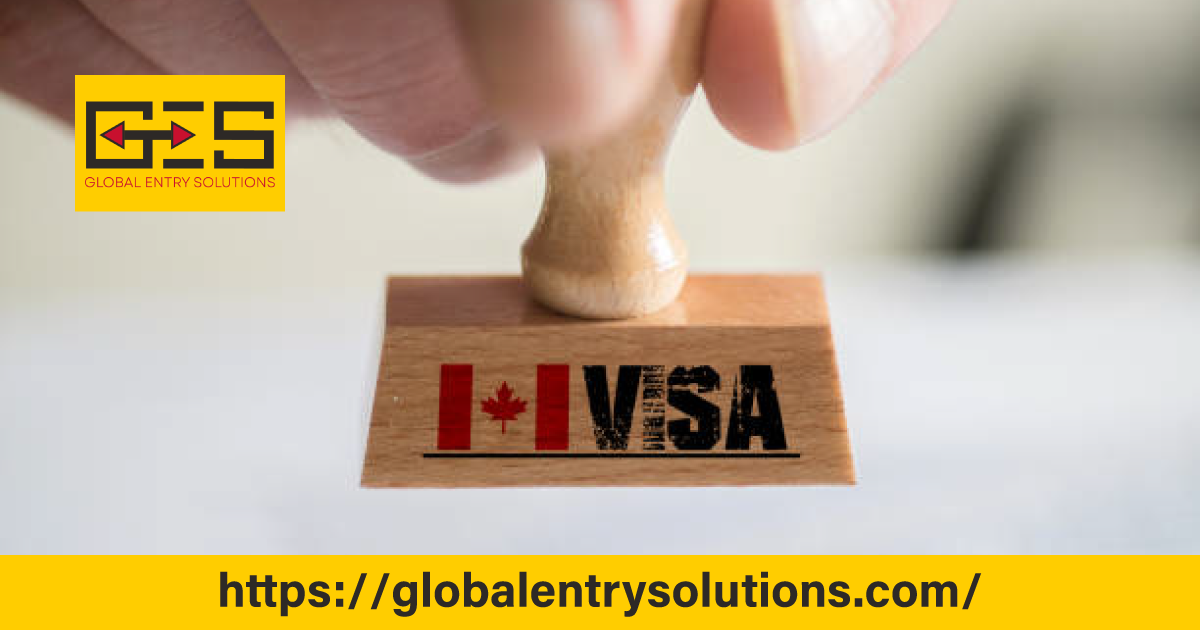Introduction: Canada Spousal Sponsorship
Are you a Canadian citizen or a permanent resident seeking to sponsor your spouse into Canada? If this applies, then the Canada spousal sponsorship program would come in handy. Through the spousal sponsorship, any citizen of Canada or permanent resident has a route to sponsor their spouse for permanent residency, offering the gateway towards setting a new life together in Canada. Whether you are applying from within Canada or from another country, this guide will walk you through the process step by step, covering everything from eligibility to document requirements and key tips to streamline your application.
Overview of Canada Spousal Sponsorship

The Canada spousal sponsorship process allows the Canadian citizens and permanent residents to sponsor their loved ones for permanent residency in Canada. With this, couples can be reunited in Canada and eventually build their future there. Let us break down the process which includes various qualifying relationships, benefits of the application process, the steps of applying, and much more.
By the end of this guide, you’ll have a clear understanding of what’s required and how to maximize your chances for approval. Here’s everything you need to know.
Approved Relationship Types for Spousal Sponsorship in Canada

For Canada spousal sponsorship, a relationship can only be sponsored under one of three specific categories. This would mean that only a good relationship would be eligible for sponsoring. Here’s a comprehensive overview of each category.
- Common-law Partner: A common-law partner is someone who has lived together with you in a manner of marriage for at least one year but was not legally wed to you. To quality in this category, it must be proven that he or she has co-habited with you under the same roof, exhibiting the life of a similar marriage couple. This category recognizes all gender identities and makes sure to reflect modern styles of partnerships where marriage may have not been formalized.
- Spouse: A spouse is the person legally married to the sponsor. The marriage must be valid in the country where it occurred and must also meet the requirements of Canadian law, even if the couple resides elsewhere. A marriage certificate is commonly required, along with proof of a genuine and ongoing relationship.
- Conjugal Partner: A conjugal partner is someone in a committed relationship with the sponsor but unable to live together due to valid circumstances, such as immigration restrictions, cultural boundaries, or legal limitations to do so. To qualify in this category, you demonstrate that your relationship has been continuing for at least 12 months, showing evidence that the bond remains active, exclusive, and ongoing. An applicant may qualify for this category if they cannot live together but have demonstrated a strong commitment to each other.
Benefits of Canadian Spousal Sponsorship

Applying for Canada spousal sponsorship holds many benefits other than being reunited with your loved one. Being together in Canada has both practical and emotional advantages. Here’s why Canadian spousal sponsorship can be life-changing:
- Permanent Residency Rights: When your spouse achieves permanent residency in Canada, they get almost all of the same rights as every other permanent resident. Among them is the right to work, study, obtain healthcare, and enjoy legal protection. Canada spousal sponsorship gives your spouse a sound base from which to build a new life in the country.
- Healthcare and Social Services Access: Canada’s health care may be one of its finest assets. Your spouse will have all these services available to him/her as a permanent resident. This is an especially important benefit if healthcare options were either very limited or very costly in their home country. The added security of healthcare access can ease the transition to life in Canada.
- Opportunities of Employment and Education: In case of holding a dependent PR visa, the spouse will be able to work or study without having extra permits. It will expose many opportunities to advance career and acquire new skills for education in higher institutions. Moreover, they will contribute towards the family income by adding to their professional network within Canada.
- Long-Term Stability and Security: Having your spouse in Canada provides long-term security and allows the two of you to plan for your future. The dependent PR visa is supportive of a stable, secure foundation upon which you can create a shared life, build a family, and be an active contributor to Canadian society. The spousal sponsorship program reflects Canada’s commitment to family reunification and promoting strong familial bonds in the community.
Processing Time for Visa

The most important factor when applying for a Canada spouse visa is the processing time. The processing times vary according to a few factors, including whether the applicant is inside or outside Canada, the type of relationship, and the completeness of the application. In general, here is what you can expect for processing times in 2025:
- Processing Time for Spouse or Common-law Partner Inside Canada: If your spouse or partner is within Canada, the processing time for a Canada spouse visa is around 14 months. This could take longer depending on how complex the application is or any other external factors.
- Processing Time for Spouse or Common-law Partner Outside Canada: The average processing time for spouses or common-law partners residing outside Canada is around 11 months. Applications filed from outside Canada usually process a bit faster, especially if the documentation is well-prepared and error-free.
Recently, the IRCC has improved its processes to make spousal sponsorship easier. Even though the wait time may still seem long, a well-prepared application is likely to move forward without extra delays. With proper submission of all necessary documents, free of errors, you can avoid common processing problems.
Step-by-Step Process to Apply for a Canada Spouse Visa

In order to successfully apply for a Canada spouse visa, it is essential to strictly adhere to each step. Here is what you need to do:
Step 1: Check Eligibility Requirements
First, you and your spouse must qualify for Canada spousal sponsorship. This implies that you have to verify that your relationship fits into one of the three categories recognized: spouse, common-law, or conjugal partner.
Step 2: Gather Relevant Documents
Gather all relevant documents that can support your application. These include relationship evidence, identity documents, financial statements, and any other paperwork that verifies the authenticity of your relationship. The more organized and comprehensive, the better.
Step 3: Complete the Required Forms
The applicant and the sponsor must complete particular forms. It is important that the information filled is correct since an error or omission can lead to delayed processing or rejection of the application.
Step 4: Pay Sponsorship Fees
Pay the total cost for the Canada spouse visa. The total amount of $1,080 CAD comprises various processing and administrative fees for spousal sponsorship.
Step 5: Submit the Application
Always ensure that all forms and documents are complete and error-free before submitting them to IRCC. Submit a copy of the application. Errors in an application means the possibility of delays.
Carrying out these steps ensures a high chance of acquiring a positive outcome and excludes any possible setbacks in the process.
Cost of Sponsorship Visa
The fee for Canada spousal sponsorship is $1,080 CAD. Here is how it breaks down:
- Sponsorship Fee: $75 CAD
- Principal Applicant Processing Fee: $490 CAD
- Fee of the Right of Permanent Residence: $515 CAD
If there will be a dependent child added in your application, then that’s additional by $155 CAD per child. Always double-check fees before submission, as they may change with currency fluctuations or other factors.
New Rules for Spouse Visa in 2025
In 2025, IRCC has streamlined the process of applying for the Canada spouse visa, making it easier and faster. Here’s a summary of these developments:
- Faster Processing Times: This year, IRCC announced faster processing times for spousal sponsorships, allowing for quicker reunification compared to previous years.
- Application Process Simplified: The application forms feature clearer, easier-to-read questions and instructions, making the process simpler for applicants.
- Real-Time Application Tracking: Nowadays, the IRCC is introducing real-time tracking for an application status, which shows transparency and helps applicants with the status.
- Financial Support Requirements: Sponsors must demonstrate they can financially support their spouse, providing for necessities like housing, food, and healthcare.
These updates are aimed at reducing wait times, increasing transparency, and ensuring that genuine applicants experience a smoother process.
Essential Document Checklist for Canada Spousal Sponsorship
A complete and accurate Canada spouse visa application requires various supporting documents. Each document helps establish the authenticity of your relationship. Here’s what you’ll need:
- Identification and Travel Documents: Include a valid passport, birth certificate, driver’s license, and all relevant documents of travel history.
- Proof of Marriage: If applying as a spouse, a marriage certificate would have to be presented to attest the legitimacy of the marriage.
- Status of the Sponsor in Canada: Proof of citizenship or permanent residence in Canada by the sponsor, with either a PR card, birth certificate, or a Canadian passport.
- Financial and Employment Records: Bank statements from the past three months, an offer letter by the employer, salary slips, and proof of steady income demonstrate that the applicant is financially sound to care for their spouse.
- Police Clearance Certificate (PCC): If the applicant has lived in other countries, they must provide police clearance certificates from each country where they have stayed for six months or more since turning 18.
Proving a Genuine Relationship
The IRCC insists on proof of a true relationship to avoid fraudulent applications. Here’s the proof often required:
- Communication Records: Keep records of emails, text messages, letters, and social media interactions. It shows that you and your spouse have communicated each other most of the time.
- Proof of Living Together: If you’ve lived together, joint lease agreements, utility bills, or shared property documents help establish your commitment.
- Financial Support: Bank statements that indicate regular transfers between the sponsor and applicant do demonstrate financial support. This is even more valuable when you have not lived together; it will show commitment and support even though you have been miles apart.
The more supporting documents you have, the stronger your application will be. Consistent and varied evidence will also help confirm that your relationship is genuine and is vital in the assessment of the IRCC.
Tips to Speed Up the Canada Spousal Sponsorship Process

The spouse visa for Canada can take a few months to process. Here are some tips to help minimize processing time and increase the chances of getting a successful application:
- Strong Evidence of the Relationship: First, you must demonstrate a genuine relationship with clear and consistent evidence. Evidence that clearly supports the genuineness of your relationship will ensure the processing faster.
- Demonstrate Financial Stability: You must have funds available to support your spouse on their arrival in Canada. This includes showing proof of income, savings, and any transfers between you and your spouse.
- Meet the Age Requirement: Both the sponsor and applicant must be at least 18 years old. The minimum age requirement is important and prevents automatic disqualification.
- Ensure Complete Documentation: Missing or inaccurate information, or the absence of required documents, can delay the application and may even lead to rejection. Ensure your application is accurate and complete before submitting it to the IRCC. Most delays in spousal sponsorship are due to a half-filled application.
- Track Your Application: Make use of the real-time application tracking service offered by the IRCC. Knowing the status of your application enables you to respond promptly if further information is required.
With these tips, you can improve the strength of your application and maybe even reduce the processing time.
Common Mistakes to Avoid in Application Process

Understanding common mistakes can help avoid delays and rejections in your application for a Canada spouse visa. Here are some possible mistakes to watch out for:
- Missing Documentation: Make sure all necessary documents are submitted. Be sure to strictly follow the checklist of documents before submitting them.
- Incomplete or Incorrect Forms: Common delay causes are due to an inaccurate or partially filled form. Take your time to fill up each detail correctly.
- Inadequate Proof of Relationship: Lack of adequate proof regarding the relationship will raise many red flags. Therefore, you must provide consistent and varied documentation of your relationship.
- Ignoring Financial Requirements: Be sure that you have a sufficient amount of money that can support your spouse with basic needs. Sponsors must prove they can meet their spouse’s basic needs.
- Not Following Up: Follow up on your application. Answer any requests for more information promptly. Such follow-ups prevent unnecessary delays.
Knowledge of such common mistakes and careful preparation of the application will significantly improve its success.
Conclusion: Canada Spousal Sponsorship
The Canada spousal sponsorship program gives you the chance to reunite with your spouse, start a new life together in Canada, and build a brighter future. Although the process may seem cumbersome, knowing each step, obtaining the right documents, and using best practices increase your chances of success. Follow these tips to make your application smooth and on time.
Completing a Canada spouse visa application requires attention to detail, organization, and a genuine commitment to your relationship. If you prepare correctly, you and your spouse will be able to enjoy all the benefits of living together in Canada soon.








